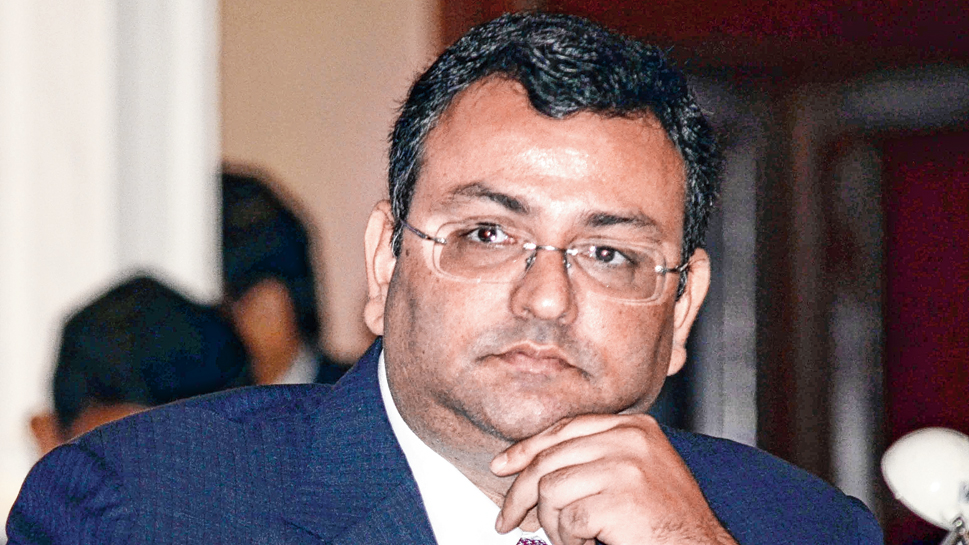Tata Sons told the Supreme Court on Wednesday that the National Company Law Tribunal order directing the reinstatement of Cyrus Mistry as chairman of the $ 113-billion group would effectively render the Shapoorji Pallonji group as the majority shareholder if it is upheld. It also insisted that that there had been no mismanagement of the company or oppression of the minority shareholder that would warrant the winding up of the group’s holding company under the existing laws.
Continuing his arguments for the second day, senior advocate Harish Salve appearing for Tata Sons told a bench headed by Chief Justice S.A. Bobde that the group’s assets rose from Rs 69 crore in 1965 to Rs 58,000 crore, yet the Mistry group had accused the Tata Sons of mismanagement and oppression before the NCLAT.
“The valuation of their holding rose from Rs 69 crore in 1965 to Rs 58,000 crore in 2016. Yet they say Ratan Tata ran the company so badly, that it was fit to wind it up in 2016…” Salve told the bench which includes Justices A.S. Bopanna and V.Ramasubramanian too.
The court is hearing an appeal filed by Tata Sons challenging the NCLAT order of December 18, 2019 directing reinstatement of Cyrus Mistry as the executive chairman of the company. The NCLAT order was subsequently stayed by the Supreme Court in January this year.
According to the Tatas, the Mistry group owns only 18 per cent of the shareholding and was only a minority shareholder.
Assailing the NCLAT order, Salve said: “With the NCLAT order, the majority is out and the minority is running the company…” .
Questioning the petition filed by Mistry in NCLA, Salve asked: “On what basis are they saying there is justification for winding up Tata Sons? So if we go by their claims, it is strange management which has mismanaged the company but still taken its valuation from 1 lakh cr in 2017 to 1.75 lakh crore in 2020.”
He was referring to the counter claim of the Mistry group that the latter shareholding was to the tune of Rs 1.75 lakh cr contrary to the Tata Sons claim that it was just not more than Rs 80000 cr as on today.
“Unless the losses were so enormous and there was such lack of probity so that there was no other way except to boot them (Tata Son) out, NCLAT could not have reached the conclusion it did.
“In the cross appeal they have filed, they have claimed valuation of 1.5 lakh crores. They (Pallonji) have now asked that they be given 18 percent in all downstream Tata companies and as per their latest application the valuation is 1.75 lakh crores,” Salve submitted.
Rejecting allegations of impropriety and mismanagement, the senior advocate submitted that there was no lack of probity in giving Tata Teleservices shares to C.Sivasankaran of Temasek as the prices of the stock had actually gone up.
He said Sivasankaran had handled negotiations with Malaysian company in a remarkable manner when Tatas wanted to sell stake in Tata Teleservices and as a result prices went up, so where is the question of lack or probity he asked.
The counsel said giving penthouse to Sivasankaran at discounted rent is also not lack of probity and recalled that even Cyrus Mistry's brother was also given a similar penthouse.
“So if we go by their (Mistry group’s) claims, it is a strange management which has mismanaged the company but still taken its valuation from 1 lakh crore in 2017 to 1.75 lakh crore (present valuation),” Salve remarked.
The CJI however, pointed out that under Sections 241 and 242 of the Companies Act, a party seeking resolution before the NCLAT need not necessarily seek winding up of a company as it can seek other remedies for running the company.
“The Tribunal can then look into the complaint and if it feels that it is just and equitable to wind up company but not expedient to do so in shareholders’ interest, then directions can be passed by tribunal,” Justice Bobde said while pointing out that there is no specific need to plead for winding up of the company.
Salve said Tata Sons being a private limited company in terms of the Companies Act 2013 has restricted its members to 50.
Cyrus Mistry was initially inducted as deputy exuectie chairman to work under Ratan Tata before he took over from hi. It was the first time someone from outside the family’s Tata Trusts had taken over as chairman of the Tata Sons.
According to Salve earlier the practice was to appoint a person from Tata Sons to the board of different Tata companies. However, after Mistry took over he started appointing his own persons to those companies resulting in a disconnect between the Tata Sons and the operative companies, “…the only link being Mr Mistry himself.”
The arguments would continue on Thursday.











